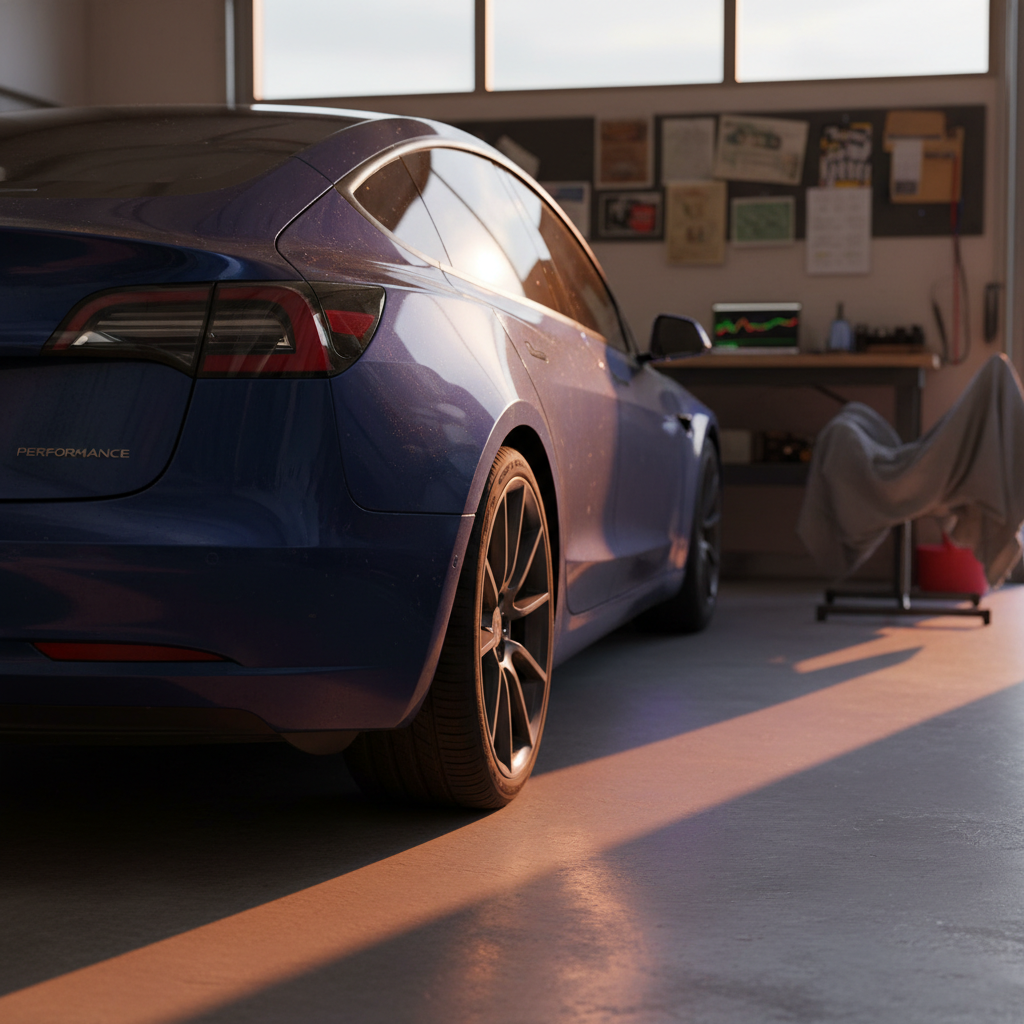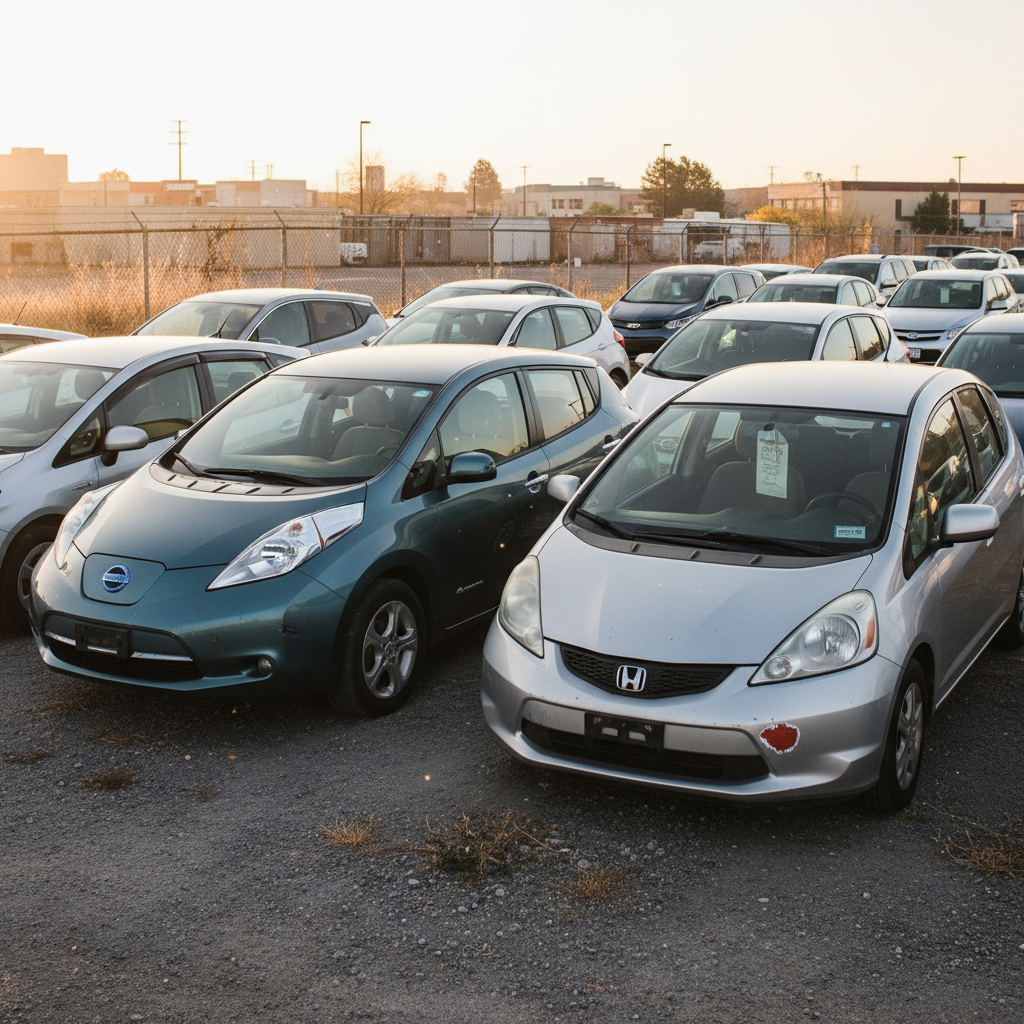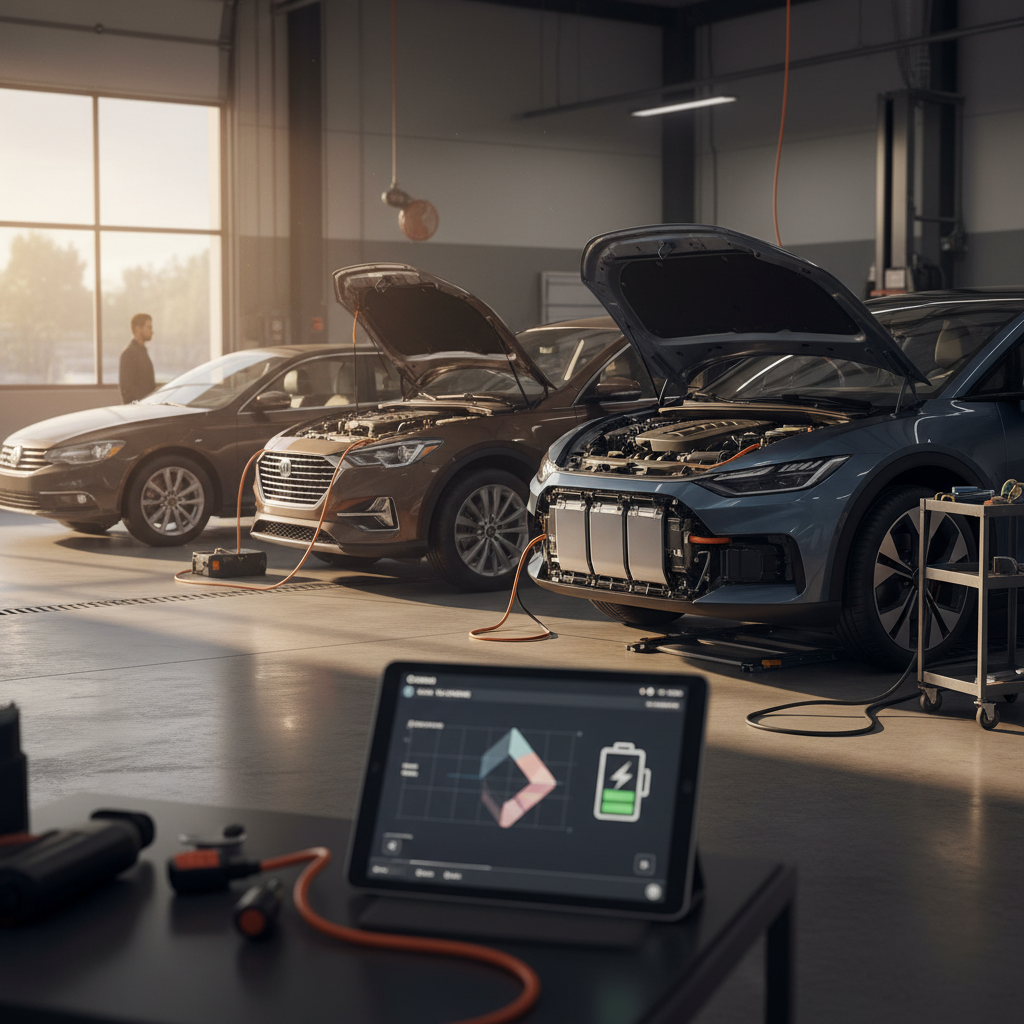If you’ve typed “used crossover SUV near me” into a search bar, you’re far from alone. In 2025, crossovers have become the default family vehicle in the U.S., and the used market is packed with choices, from compact gas models to roomy three‑row hybrids and all‑electric crossovers that cost pennies per mile to run.
What this guide will help you do
Why used crossover SUVs are so popular right now
The used crossover SUV sweet spot
Crossovers blend the carlike ride of a sedan with the higher seating position and flexible cargo space of an SUV. On the used market that means you can get more practicality per dollar than most other body styles. Because so many crossovers have been sold over the last decade, you’ll find strong supply at nearly every price point, from budget‑friendly older models under $15,000 to nearly new electric crossovers coming off lease.
Tip: Don’t shop by price alone
Step 1: Decide between gas, hybrid, or electric crossover
Gas crossover
- Best for: Drivers who rack up miles in rural areas or rely on quick fill‑ups.
- Pros: Lowest purchase price, widest selection, plentiful repair options.
- Cons: Highest fuel and maintenance costs over time.
Hybrid crossover
- Best for: Commuters and families who want better mpg with no charging.
- Pros: Great city mileage, smooth drive, strong reliability from brands like Toyota and Honda.
- Cons: Higher purchase price than gas, battery replacement cost eventually.
Electric crossover SUV (EV)
- Best for: Homeowners or renters with regular access to charging and predictable daily routes.
- Pros: Lowest running costs, quick acceleration, quiet ride, fewer moving parts.
- Cons: Range and charging access matter; battery health is critical when buying used.
Think about your daily pattern first
If you’re leaning toward an electric crossover SUV, look at models like the Kia EV6, Audi Q4 e‑tron, BMW iX, Honda Prologue, or earlier EV crossovers such as the Kia Soul EV. These offer usable real‑world range and modern safety tech, and many benefit from eight‑year battery warranties that are still in effect on relatively young used examples.

Most reliable used crossover SUV models by budget
One of the smartest ways to shop for a used crossover SUV near you is to start with models that have already proven they can go the distance. Large data sets from millions of vehicles consistently put a few nameplates at the top of the reliability charts.
Used crossover SUVs with strong reliability records (2025 data)
Examples of mainstream crossovers that perform well in 2025 reliability analyses at different price points. Actual prices near you will vary based on mileage, trim, and condition.
| Budget band (typical) | Example model | Why it’s a smart pick |
|---|---|---|
| Under $15,000 | 2016 Mazda CX-5 | Fun to drive with strong long‑term reliability scores for this generation. |
| Under $20,000 | 2019 Subaru Crosstrek | All‑wheel drive and an 8/10 reliability score make it appealing for bad‑weather regions. |
| Under $25,000 | 2019 Toyota RAV4 | Ranks among the most reliable crossovers under $25k with a solid 8.2/10 rating. |
| Under $25,000 | 2020 Honda CR-V | Another 8.2/10 reliability standout with excellent fuel economy and space. |
| Around $28,000–$30,000 | 2021–2024 Mazda CX-5 | Later CX‑5s combine upscale interiors with robust dependability and reasonable pricing. |
| Mid‑$30,000s | 2023 Toyota Highlander | A three‑row crossover that leads reliability lists under $40k with an 8.1/10 rating. |
Use this as a short list, not a hard rule, availability will depend on your local market.
Good news for shoppers
How to actually search for a used crossover SUV near you
Three ways to search smarter than everyone else
Combine tools instead of relying on a single site or dealership.
1. Local dealer and marketplace searches
Search "used crossover SUV near me" in Google or Apple Maps, then:
- Filter by certified pre‑owned (CPO) when you want added warranty coverage.
- Sort by newest listings so you see fresh inventory first.
- Call ahead to confirm availability, many popular crossovers sell quickly.
2. Online EV‑focused marketplaces
For electric crossovers, widen your search beyond your ZIP code:
- Use range, battery size, and charging speed filters.
- Look for verified battery health reports, not just a state‑of‑charge photo.
- Factor in delivery if the right vehicle is a few states away.
Recharged, for example, lets you shop used electric SUVs nationwide and get them delivered.
3. Saved searches & alerts
Create saved searches on major listing sites and enable alerts.
- Set your radius (try 50–150 miles for more choice).
- Define must‑haves (AWD, adaptive cruise, tow package, etc.).
- When a great match appears, you’re among the first to know.
Move quickly, but not blindly
Reading listings like a pro: photos, history, and battery health
Every listing is a little sales pitch. Your job is to read between the lines. Start by scanning the photos and the description together. You want a listing that feels transparent, not one that hides the ball.
Key things to check in every listing
1. Photo quality and consistency
Blurry photos, nighttime shots, or only a handful of angles can be a sign the seller is hiding cosmetic issues. Look for clear daylight photos of all sides, interior, tires, and cargo area.
2. Accident and ownership history
Always review a vehicle history report. A single minor accident isn’t necessarily disqualifying, but multiple accidents, salvage titles, or flood branding are reason enough to walk away.
3. Maintenance and recall records
For gas and hybrid crossovers, oil changes and factory services matter. For EVs, check for software updates and any battery‑related recalls being addressed.
4. Battery health on electric crossovers
With a used electric SUV, don’t settle for a vague “battery is fine” claim. You want objective data, remaining capacity, fast‑charge behavior, and any warranty coverage left. Recharged includes a <strong>Recharged Score</strong> that quantifies battery health on every used EV it lists.
5. Options and driver‑assist tech
Crossovers can vary widely in features. Confirm whether the vehicle actually has items like adaptive cruise control, 360‑degree cameras, heated seats, roof rails, or a tow hitch instead of assuming they’re standard.
Test drive and inspection checklist
Once you’ve found a promising used crossover SUV near you, the test drive is where you confirm whether the reality matches the listing. Plan to spend at least 30–45 minutes with the vehicle, including some quiet time in a parking lot to poke around.
What to do on every test drive
1. Start with a cold start
If possible, see the vehicle started after it’s been sitting. Listen for rattles, ticking, or rough idle on gas models; on EVs, watch for error messages or warning lights on start‑up.
2. Drive a mixed route
Include city streets, highway, and some rough pavement. A good crossover should feel stable at speed, quiet enough for conversation, and free of clunks over bumps.
3. Test brakes and steering feel
The pedal should be firm and linear, not mushy. Steering should track straight with no vibration. On EV crossovers, make sure you’re comfortable with the level of regenerative braking.
4. Check HVAC and tech systems
Confirm the A/C and heat work quickly, test all seat adjustments, pair your phone, and try every camera and sensor (parking sensors, lane‑keeping, adaptive cruise if equipped).
5. Inspect tires and cargo flexibility
Uneven tire wear can reveal alignment or suspension issues. Fold the rear seats, check how flat the load floor is, and make sure the cargo area suits your lifestyle.
6. Consider a pre‑purchase inspection
For peace of mind, especially on older or higher‑mileage crossovers, a pre‑purchase inspection from a trusted independent shop, or an EV specialist for electric models, is money well‑spent.
Never skip the paperwork
Pricing, negotiation, and financing tips
Modern pricing tools have made it easier to see whether a used crossover SUV near you is fairly priced, but you still need to know what drives the numbers. Year, mileage, options, accident history, and local demand all play a role.
Understanding price vs. value
- Check multiple sources, dealer listings, online marketplaces, and appraisal tools, to see the realistic price range for the model and year you want.
- Adjust your expectations for options like AWD, premium audio, panoramic roof, or advanced driver‑assist, it’s normal to pay more for well‑equipped examples.
- On EVs, factor in battery health and remaining warranty. A slightly higher price on a car with a strong battery report can be the better value.
Financing and trade‑ins
- Get pre‑qualified with your bank or credit union so you know your rate before you visit a dealer.
- Consider online sellers like Recharged that can pre‑qualify you with no impact to your credit and show real payments up front.
- Get at least one independent quote for your trade‑in; an online instant offer gives you a baseline before you negotiate on a lot.
Bundle value, not just price
Why more buyers are choosing used electric crossovers
Five years ago, used electric crossovers were a niche. Today, they’re a serious alternative to gas and hybrid models, especially for households that can charge at home. Vehicles like the Kia EV6, Audi Q4 e‑tron, BMW iX, Honda Prologue, and several earlier models are now appearing on the used market in meaningful numbers.
Key advantages of a used electric crossover SUV
Why they’re increasingly hard to ignore for many shoppers.
Lower running costs
Electricity is typically cheaper per mile than gasoline, and EVs don’t need oil changes, timing belts, or exhaust repairs.
Quieter, smoother drive
Instant torque and near‑silent operation make even modest EV crossovers feel upscale around town.
Data‑backed battery health
On platforms like Recharged, you can see a Recharged Score report that quantifies battery condition, range, and fast‑charging performance so you’re not guessing about the pack.
How Recharged fits into your search
Frequently asked questions about used crossover SUVs near you
Used crossover SUV: common questions
Final thoughts: building your short list
When you search for a used crossover SUV near me, the sheer number of choices can feel overwhelming. The key is to decide first what type of crossover fits your life, then focus on proven, reliable models and the best‑cared‑for examples you can find, locally or online. Use history reports, battery‑health data for EVs, and a disciplined test‑drive routine to separate the great candidates from the forgettable ones. If an electric crossover is on your radar, tools like the Recharged Score and EV‑specialist guidance can take the mystery out of battery health and pricing, so you end up with a vehicle that’s not only nearby on a map, but also right for your budget and your driveway for years to come.



